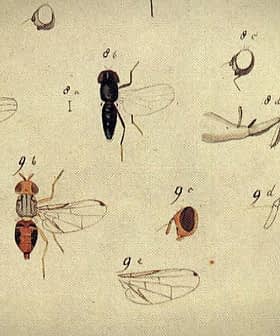Researchers Trace Mediterranean Diet's Origin to Ancient Greek Medicine
A study by Professor John Wilkins of Exeter University suggests that the Mediterranean diet may have been developed by early Greek doctors as a form of medicinal treatment, with practices by Galen of Pergamon closely resembling those of modern Mediterranean advocates. Galen emphasized the importance of nutrition in maintaining good health, focusing on the use of flavorful foods and spices to balance bodily humors and promote overall well-being, setting the foundation for today’s Mediterranean diet principles.
A new study of ancient Greek texts reveals that the Mediterranean diet may have been conceived by early doctors as a form of medicinal treatment.
The study, published in the Journal of Ethnopharmacology on January 6, was authored by professor John Wilkins of Exeter University, an expert on the history of food and medicine in Greco-Roman culture.
Professor Wilkins describes practices by Galen of Pergamon that closely mirror those of modern Mediterranean advocates.
Born in 129 A.D., Galen relied heavily on preventative medicine as a method of treatment. The personal physician to several emperors, he saw nutrition as the equal of pharmacology in the maintenance of good health over an individual’s lifespan.
Rather than attributing illness to a supernatural force or deity, Hippocratic Greek doctors like Galen emphasized a need for simple, flavorful food to their patients. This was derived from the notion that the exterior properties of a food underscored their effect on the human body.
See Also:Articles about the Mediterranean Diet
If a fruit or vegetable is particularly potent, for example, the strong flavor could be considered a reflection of nutritional value. Poor taste was therefore not merely a culinary issue, but a medicinal one as well. As a result, added flavoring became a key component of the early Greek diet, with stress placed on the use of olive oil and fish sauce to improve the potency of food.
According to Wilkins, Galen was known to instruct patients to season their meals with spices like ginger or pepper when they could afford them.
Humorism played a large role in how nutritional foods were selected. The idea was that a balance of the bodily fluids known as humors was necessary in order for a patient to achieve health. Manipulating diet was a primary tactic for bringing disproportionate humors back to a symmetrical level; onions or garlic, for instance, might be prescribed as a thinning agent to someone whose humors were too thick.
Although some recognizable elements of today’s Mediterranean cuisine were not yet introduced to Greece, (such as the South American tomato) Galen and other Hippocratic doctors laid much of the structural foundation for how the diet is still applied nearly two thousand years later. Sweet and fatty foods in high quantities were discouraged then as they are today. Meat was not always readily available, which gave rise to a movement towards more plant-based meals.









